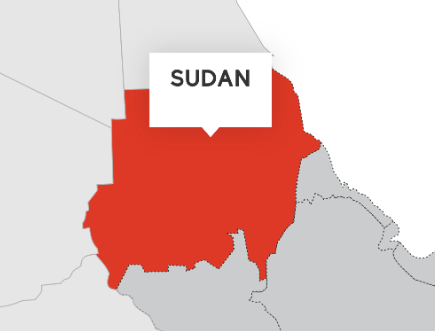In light of the atrocities committed by Sudan’s paramilitary Rapid Support Forces (RSF) and their allies in and around El Fasher, North Darfur, it was vital for the UN Human Rights Council to hold a special session and empower the Independent International Fact-Finding Mission (FFM) for Sudan to conduct further inquiries and expose perpetrators. DefendDefenders welcomes the adoption of a resolution at the end of this special session, which took place today in Geneva, but warns that more is needed to ensure accountability in Sudan.
“There are risks of further mass atrocities, including targeted ethnic violence, in North Darfur and throughout Sudan,” said Hassan Shire, Executive Director, DefendDefenders. “While the absolute priority is a ceasefire, the UN Secretary-General and the High Commissioner for Human Rights should urgently allocate adequate resources to the FFM so it can document violations, identify those responsible, and share information with the International Criminal Court (ICC) and other accountability mechanisms.”
As highlighted in a civil society letter calling on the Council to hold a special session on El Fasher, the Council had a responsibility to uphold its prevention mandate and address the crisis in a way that centres the voices of Sudanese victims, survivors, and civil society. The Council should continue to centre these voices and expose violations committed in relation to what is currently the world’s worst humanitarian, human rights, and displacement crisis.
While efforts must be directed at stopping atrocities by RSF and their allied forces, the Council should also continue to condemn violations of international law committed by the Sudanese Armed Forces (SAF), some of which amount to war crimes, as documented by the FFM. The FFM has a mandate to collect and preserve evidence of violations committed by all parties to the conflict. The UN and its member states should urgently allocate additional funding for the FFM, which is currently gravely under-resourced and under-staffed.
“What we are witnessing is an atrocity crisis of a scale rarely seen, even in a landscape marked by numerous conflicts,” said Nicolas Agostini, Representative to the UN, Senior Advocate and Researcher, DefendDefenders. “Attention is currently on the egregious crimes committed by RSF and their allies in El Fasher, but the FFM has a mandate to investigate all parties. Atrocities committed by one side do not excuse or give a free pass to the other side.”
DefendDefenders regrets that the Council did not do its utmost to secure and allocate necessary resources, including human and financial resources, to the FFM. The resolution adopted today requests an oral update delivered not by the FFM but by the UN Human Rights Office (OHCHR), before the next regular Council session (March 2026). The FFM, for its part, will in March 2026 present a report on the findings of its urgent inquiry into the recent violations committed in and around El Fasher. Under-funding translates into accountability gaps, as many crimes and violations, committed by all sides to the conflict, go undocumented.
In addition, DefendDefenders regrets that the Council did not specifically call out external actors that are fuelling the violence and enabling atrocities. While today’s resolution condemns “all forms of external interference that fuel the conflict,” it does not name the United Arab Emirates (UAE), which has been backing the RSF and its campaign of atrocities against Darfur’s Masalit and other non-Arab tribes, as well as widespread sexual violence against women and girls, in Darfur and across Sudan. It also refrains from naming backers of the SAF, including Egypt, Eritrea and other states.
The Council held its 38th special session on Sudan just a few weeks after concluding its 60th regular session (8 September-8 October 2025), during which it extended the mandate of the FFM, in line with civil society’s expectations.

